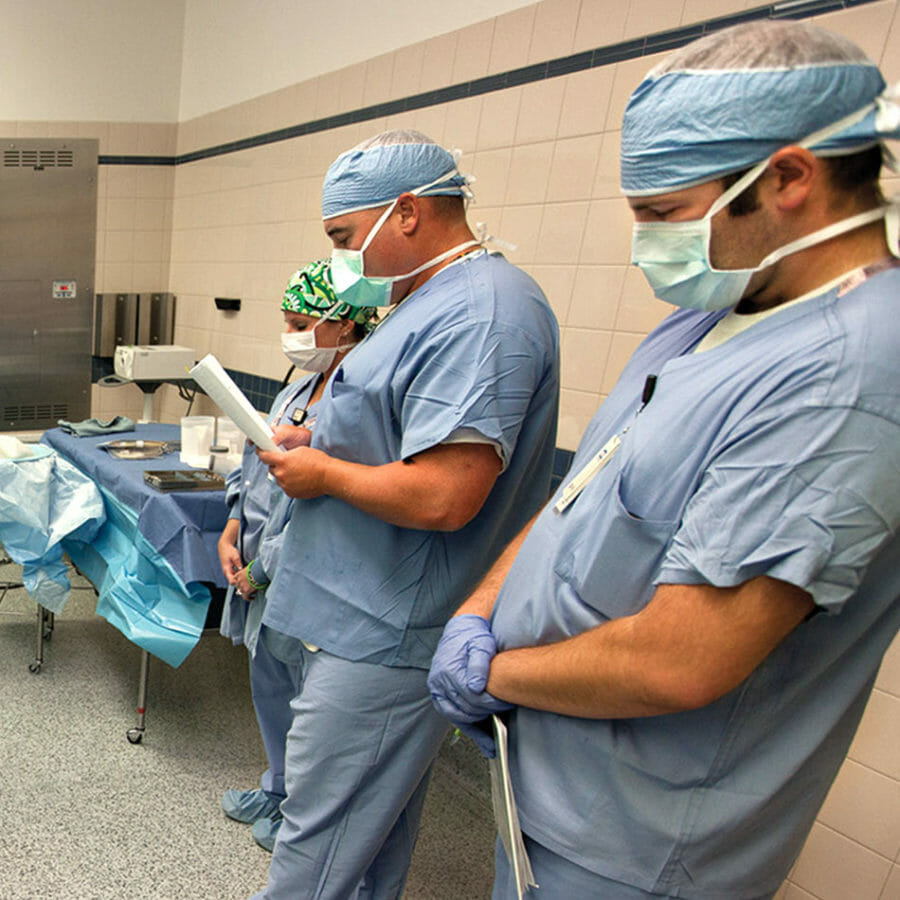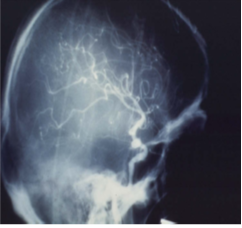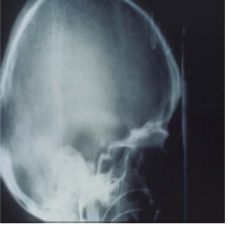Brain Death & Donation After Circulatory Death
We all know what death means. And for most of us, that means our heart and brain stop functioning. But, sometimes the brain dies and the heart continues to beat only with the support of mechanical ventilators in the intensive care unit. You can rely on us to help you understand the process differences between brain death (BD) and donation after circulatory death (DCD) – both which can provide potential healing through organ, eye and tissue donation.
Please don’t hesitate to call your LifeSource Hospital Liaison for general information or call LifeSource at 1-800-247-4273 for real-time assistance. Your responsibility is to educate yourself on the policies and procedures at your hospital, specifically.

Organ Donation Criteria
Which pathway are we on?
A potential organ donor must meet the following criteria:
- Neurological/brain death or nonsurvivable injury;
- Be on ventilated support; and
- A heart beat with normal blood pressure.
Brain death is the irreversible cessation of all brain activity, including the brain and brain stem. The brain dies from lack of blood/oxygenation. Brain death is death.
Circulatory death is the irreversible cessation of all circulatory and respiratory function. Circulation and oxygenation stops. Ventilated patient has not deteriorated to brain death. This may still be an opportunity for organ donation for patients/families when brain death has not occurred.
The process of donation begins with the incident causing the death and continues through the bereavement. Every health care professional who interacts with the family is part of the process, and every step impacts on the family’s ultimate decisions regarding donation.
Margaret B. Collican, RN, MS, CDE, National Donor Family Council
Brain Death Explained
Brain death is the irreversible cessation of all brain activity, including the brain and brain stem. The brain dies from lack of blood/oxygenation. Brain death is death.
The doctors have done all they can to treat the patient’s condition. However, the brain will not recover function, and the patient is considered dead. A brain death diagnosis is final and cannot be reversed.
Note: LifeSource does not declare death.
Brain death is unique: Less than 3-4% of all deaths actually meet brain death criteria and declaration. Brain death results from a major injury to the entire brain, such as:
- Stroke
- Head trauma
- Anoxia (lack of oxygen to the brain)
- Central nervous system tumors
If a vented patient is brain dead, LifeSource will arrive at the hospital, clinically manage the patient and further evaluate specific organs. LifeSource will match donated organs to transplant physicians on behalf of their waiting patients, per UNOS policy. When all organs have been placed, LifeSource will arrange for transportation to the donor’s hospital and schedule an OR time. Along with our hospital partners, we will continue to support and educate the donor’s family. Once the surgeons arrive and recovery takes place, organs are transported to waiting recipients. If an organ donor is also a tissue and/or eye donor, those recoveries happen after organ surgery. LifeSource or another partner donation agency then ensures a smooth handover to the funeral home.
Because the patient has died, adequate oxygenation and blood pressure must be maintained. The ventilation of the patient does not stop until midway through recovery surgery. This decreases damage to the organs, thus ensuring better outcomes for recipients. The family will say their goodbyes prior to the transport to the OR and will not see their loved one without the tubes associated with mechanical support.
The doctor will examine the patient carefully and will use several tests to make the diagnosis. He or she will look for three signs:
- The person is in a coma, and the cause of the coma is known.
- All brainstem reflexes have permanently stopped.
- Breathing has permanently stopped. A ventilator must be used to keep the body functioning.
See AAN’s 2010 brain death guideline
See AAP’s 2011 pediatric brain death guideline
See Neurocritical Care Society 2017 Brain Death course
The health care team’s key role is to help the family understand brain death and end of life decisions, and support the family. Families will be provided the amount of time they need to say goodbye to their loved one.
The key role of LifeSource staff is to help the family understand donation opportunities.
Brain death occurs when:
- All brain tissue is dead
- No electrical activity in the brain
- No blood flow
A coma occurs when:
- A portion of the brain is injured
- Electrical activity is present in the brain
- There is blood flow
It can be difficult for families to understand brain death because their loved one looks like they are sleeping and have no outward evidence of death:
- Heart is beating
- Chest is moving
- Patient is warm
- Skin has color
- Continues to be monitored
However, it is important for families to understand that their loved one has died before donation discussions take place. It’s equally important they share the information with other members of the care team.
The following communication points may be useful when helping families understand brain death:
- Provide frequent updates about the patient’s condition throughout their hospitalization.
- Ensure that all hospital staff gives clear and consistent information to the family. It is important for all hospital staff to know what the family has been told about their loved one’s condition.
- After declaration, refer to brain death as death. Tell the family the time of death. The patient is not in a coma. Refer to the ventilator and intravenous medications as artificial or mechanical support. Avoid commonly used euphemisms (passed away, gone, expired) in your conversation about death.
- Encourage the family to ask questions and to share their understanding of their loved one’s death. Allow moments of silence; try not to fill in gaps in conversation with meaningless words or explanations.
When feasible, allow the family to observe parts of the neurological exams. Explain the medical equipment and its function in the care of their loved one.
Some families may need a visual aid to fully understand the concept of brain death.

Blood Flow

No Blood Flow
The patients will look like they are sleeping when they enter the OR also; ventilator is removed mid-surgery. If you remember one thing, remember that organs are only ever recovered from deceased patients. This is important for you to remember because if you’ve never been involved in a recovery before, it may be unsettling. Brain dead patients also sometimes experience spinal reflexes, which originate from the spinal nerves, not the brain or brainstem. This means that healthcare professionals and families may see some movement of extremities. This should not be confused with brain activity.
Donation After Circulatory Death (DCD) Explained
Circulatory death is the irreversible cessation of all circulatory and respiratory function. Circulation and oxygenation stops. Ventilated patient has not deteriorated to brain death. This may still be an opportunity for organ donation for patients/families when brain death has not occurred.
For donation after circulatory death (DCD) the following circumstances must exist:
- The patient is on life-sustaining medical treatment/ventilator support,
- There is planned withdrawal of life-sustaining medical treatment/ventilator support,
- The primary healthcare team and LifeSource evaluate potential gifts considering patient condition and circumstances.
- Support is withdrawn in the operating room.
- Family can be with their loved one for withdrawal of care and through death declaration. Family is aware of limited time to spend with loved one after death declared.
- Hospital physician or designee declares death.
- Organs recovery begins after circulatory death is declared.
Cardiac Death:
- Tissues:
– Bone/Connective Tissue
– Bone Marrow
– Skin
– Heart Valves
– Blood Vessels - Eyes/Corneas
Brain Dead Donor:
- All tissues
- Eyes
- Organs:
– Kidney
– Heart
– Pancreas/Islet cells
– Lung
– Liver
– Intestine
Donation After Circulatory Death (DCD):
- All tissues
- Eyes
- Organs:
– Kidney
– Pancreas
– Lung
– Liver
In many ways DCD donor death is similar where a family has accepted that continued medical care is futile and seeks to move to comfort cares.
With DCD, the family made the decision to discontinue life-sustaining measures and LifeSource and the hospital work with the family to determine the timing of extubation. We accompany the patient and family to the OR, and when the patient is extubated we remain in the OR until death is declared. The patient is given identical comfort medications as non-donors extubated in the ICU and is attended to by the ICU bedside nurse.
If the patient dies within the prescribed time to allow donation, we help the patient’s family leave the OR and surgery will begin shortly after death pronouncement. If the patient does not die within the stated timing parameters, then we accompany the patient and their family to a prearranged hospital room to continue the dying process. The time allowed to deteriorate to death is short, as extended ischemic damage results in organ damage which makes transplantation impossible.
Additional Resources
For more information regarding donation, check out these resources.
Reach out to your LifeSource liaison.
Our hospital liaisons are a resource for more than 270 hospitals in our region. They help hospitals maintain their donation programs by assisting with policy and protocol development, analyzing data, preparing for regulatory surveys and providing education on the donation process.
Subscribe to the professional partners newsletter!
Be in-the-know on the industry’s clinical innovations, get answers to your most frequently asked questions and be inspired by those who have made more life possible.
 Skip to main content
Skip to main content
